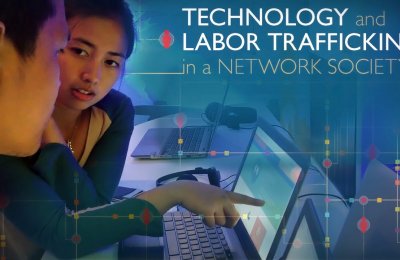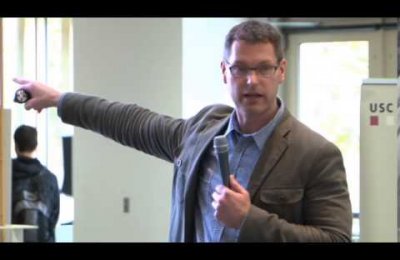This story focuses on the work of students in USC Annenberg's Specialized Journalism master's degree programs. To learn more about the programs, click here.
By Jackson DeMos
The iPad tablet computer has changed the way many people consume news, but a journalism class starting this fall taught by professor Bill Celis will explore how the iPad might also change the way news is created.
The 10 students in "Journalism 584: Specialized Reporting: Education, Youth and Learning" will learn education reporting from Celis while being trained by USC Annenberg Director of Web Technologies Wendy Chapman and New Media Specialist Matt Frank to produce news stories wherever and whenever they might occur. Students will be armed with an iPad, audio recorder and camera as they report and file stories from various locations. They will also keep up with changing technology throughout the semester.

Among the advantages of the iPad is its portability (lighter than a laptop), connectivity (Internet even without Wi-Fi), and its battery life (9-10 hours of Internet access).
"The more technology we are able to use in our reporting means we are able to more effectively tell the story," said Kate Mather, a senior majoring in Print Journalism who signed up for Celis' class. "We are no longer limited by words — now we can shoot video, do a slideshow, edit audio. The possibilities are endless for multimedia journalists, and as reporters it's our responsibility to develop as many skills as necessary to better tell the stories we find."
Chapman said many schools and universities are using the iPad for content consumption, but it's unique for students to learn to use it to produce content.
"As a school that’s trying to imagine and help create the future of journalism, testing the boundaries of a new and powerful mobile device is important," she said. "It’s vital to push the boundaries and demystify technology. Students need to be comfortable trying new things."
And while this class gives students the opportunity to keep up with technology, incoming Specialized Journalism master's student Jennifer Taylor said she registered for the class primarily because of what she will learn about reporting on education and youth.
"A lot of the work I do as a documentary filmmaker tends to focus on young people and the questions about education and socio-economic equity," said Taylor, who has made films for media outlets such as PBS (view synopsis of her latest film). "I felt contextually it’s important content that would give me a good chance to work more deeply with that subject matter."
However, Taylor said the new media component of the class has her excited for the semester to begin.
"I feel like I’ve been scratching the surface on what these new platforms can offer," she said. "It was serendipitous but fantastic to find out the class will use these new technologies."
The class also aligns with USC Annenberg's commitment to environmental sustainability. Because all readings and assignments will be done on the iPad, no paper will be used.
"This class will be completely 'green,'" Celis said. "We're using eBooks, Blackboard, and PDFs. We’ll be blogging and posting from the field straight to a website."
Mather said she and her classmates will have a great opportunity through this class to deal with real education issues that affect the entire country.
"Bill is a great teacher with a very experienced background in education, so that, coupled with the issues we'll be looking at, made the class seem like too great an opportunity to pass up."








